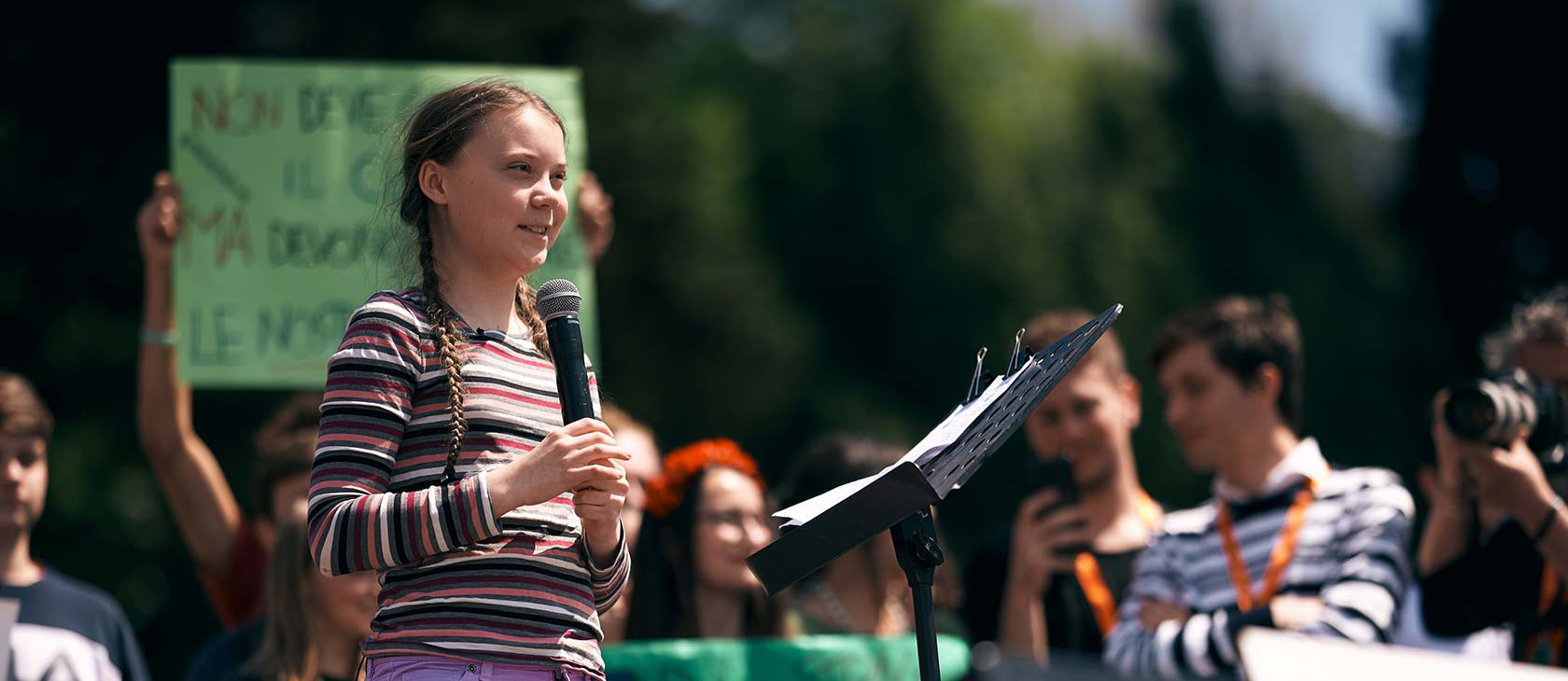Swedish climate activist Greta Thunberg made international headlines this week for a scathing speech at the United Nations Climate Action Summit 2019 in New York. Thunberg excoriated world leaders for their “empty words” and propagation of “fairy tales of eternal economic growth.” The teen spoke passionately, mourning that “the politics and solutions needed are nowhere in sight.” Her words present a stark picture, a personal image of the intergenerational challenges related to environmental and economic stewardship.
We need to begin with an understanding of the gifts God has given us.
The youth are those who will inherit the consequences of decisions made today, Thunberg reminds us, and her testimony attests to this often-overlooked moral dimension of policies and practices. Religious activism, even as it often focuses on politics, can also help remind us that the challenges of environmental stewardship are not fundamentally political or technical, but rather moral and spiritual. Abuse of creation arises from corrupted desire and broken relationships with God, humanity, and the world.
Any solutions that are humanly achievable must therefore begin with the fundamental realities of our world. A comprehensive vision of the conditions for human flourishing, what the Roman Catholic social teaching tradition has called “human ecology,” thus must include the moral and spiritual as well as material and environmental, legal and relational conditions for integral human development. As John Paul II put it, “A true concept of development cannot ignore the use of the elements of nature, the renewability of resources and the consequences of haphazard industrialization -- three considerations which alert our consciences to the moral dimension of development.”
As we take stock of our contemporary challenges and possible actions to address these challenges, we need to start with an inventory of our assets. This means essentially to come to grips with what we have been given. We need to begin with an understanding of the gifts God has given us. Only then can we have a perspective that will allow us to be good stewards of these gifts.
The first gift God gave to humanity was the gift of life, and it is a gift that is represented in the creation narrative by the image of a garden, and particularly the image of a tree: “The Lord God made all kinds of trees grow out of the ground -- trees that were pleasing to the eye and good for food. In the middle of the garden were the tree of life and the tree of the knowledge of good and evil” (Gen 2:9 NIV). It turns out that something as fundamental as trees are a critical component of human stewardship and health of our world. We do not need to hug trees to properly care for them.
On our planet we have trees that are hundreds of years old and can grow to be hundreds of feet tall. Beyond the natural beauty of these plants and the ecosystems they nurture, there are manifold benefits that accrue to the world from these forests. The human stewardship of trees includes caring for them and cultivating them, but also accounting for the economic, ecological, and aesthetic goods they produce. Good economics takes into account not only the visible and short-term consequences of an action or a phenomenon, but also the invisible and long-term effects. Carbon that is sequestered in biomass like forests may be invisible but it is no fairy tale.
pathos unmoored from reason becomes pathological.
God not only gave us trees; he gave us reason and creativity as well. Another key element of faithful human stewardship is to account for not only the material gifts we have been given, but also to use and apply the intellectual, analytic, and technical capacities we have received. This means paying attention not only to the insights of the natural sciences, but the social sciences and liberal arts and theology as well. The responsibility of stewardship involves not only preservation, but also development and progress as we productively use our gifts in their various dimensions.
The application of human creativity can take the form of cloning trees. But it also includes inventing, implementing, and improving other technologies, such as nuclear power. Any serious proposal to address the need for sustainable, renewable, and responsible energy supply in the future must include nuclear power as a key aspect of a diverse energy portfolio. Energy policy and practice must also take into account the challenges of the responsible stewardship of fossil fuels and the tradeoffs involved with moves from coal to natural gas, for instance.
As laudable as the intentions of activists like Thunberg might be, pathos unmoored from reason becomes pathological. Pathos will not save us. And neither will politics. Passion might spur us to action, but that action must be guided by prudence and wisdom. Politics is a necessary aspect of our collective action, but at best it might mitigate some of our greatest problems. We must first recognize the spiritual and moral dimensions of our contemporary challenges, and with respect to our environment this means recognizing the gifts that God has given us and the corresponding responsibilities he has placed upon humanity.













